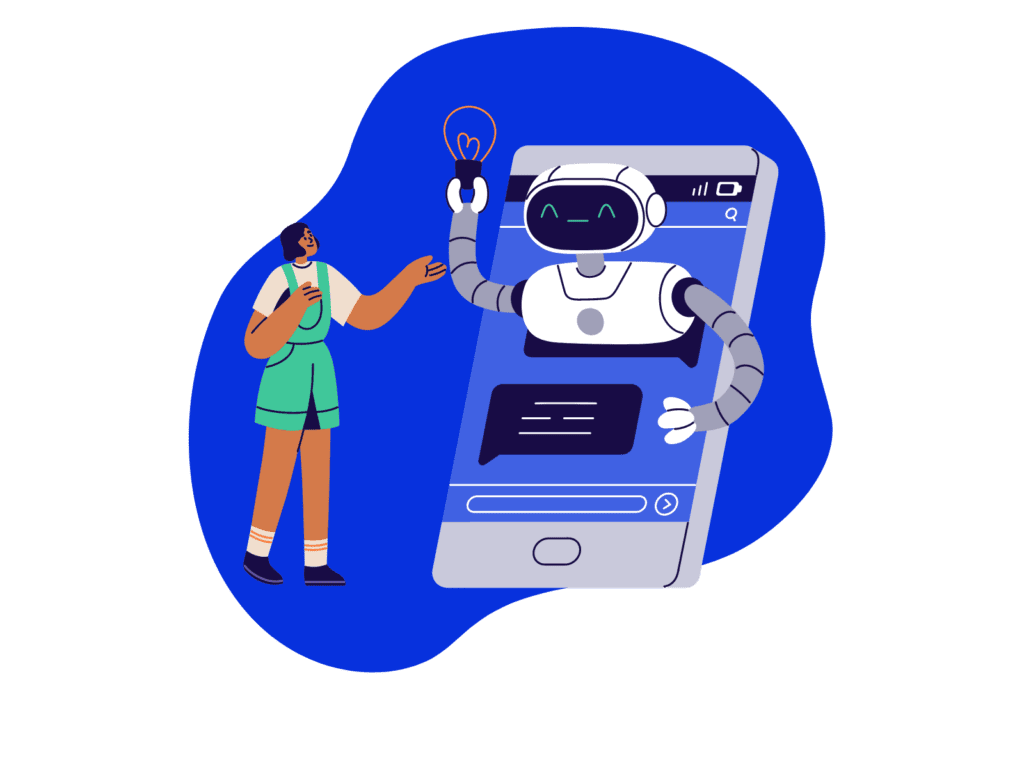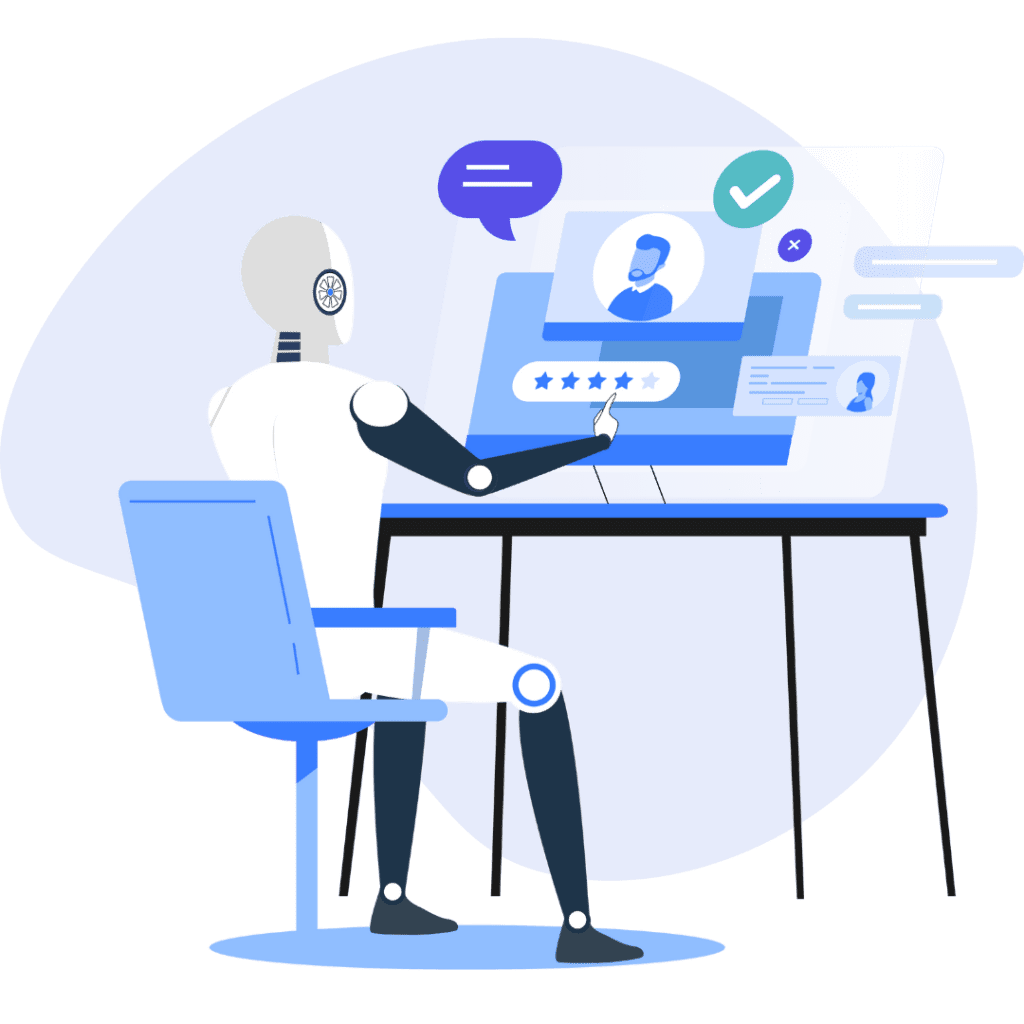Artificial intelligence for call centers: A guide to enhancing the customer experience


Customer service is changing, and artificial intelligence (AI) is at the forefront of this transformation. As competition intensifies, businesses are increasingly turning to AI to reshape how their call centers function. Their goals? Improve efficiency, cut costs, and most importantly, enhance customer experiences.
AI in call centers involves the use of advanced technologies like machine learning, natural language processing (NLP), and automation to enhance customer service operations. These tools allow AI to take on many of the tasks traditionally managed by human agents, whether it’s answering common customer questions, routing calls to the appropriate department, or even analyzing customer behavior.
Through the integration of AI-powered features like virtual assistants, automated chatbots, predictive analytics, and sentiment analysis, call centers are now able to deliver faster, more personalized, and more efficient customer service.
If you think AI is just an add-on for today’s call centers, think again. It’s fast becoming an indispensable tool for improving both operational performance and customer satisfaction.

The rise of AI in call centers is a response to the growing pressures businesses face to meet higher customer expectations while controlling costs. Historically, call centers have long struggled with common issues like long wait times, high call volumes, and inconsistent service. These challenges can lead to customer frustration, driving them to competitors.
AI provides an effective solution by automating repetitive tasks, assisting call center agents with real-time insights, and enhancing overall customer interactions.
Several key factors are contributing to this AI revolution:
The benefits of AI for call centers are vast, helping you achieve greater efficiency while elevating the customer experience.
1. Faster and more efficient service
AI tools like chatbots and virtual assistants can handle a wide range of customer enquiries almost instantly, reducing the need for human intervention. These tools can provide answers to common questions, troubleshoot issues, and even offer account information – all without a customer having to wait in a queue.
This speed is a game-changer for businesses, allowing you to reduce customer wait times and ensure that each enquiry is routed to the right place, quickly and efficiently. In industries where time is critical, like banking or healthcare, this ability to resolve issues in real-time can make a significant difference to the customer’s experience.
2. Personalized customer interactions
AI has the unique ability to analyze and summarize large volumes of customer data, past interactions, and behavior patterns to deliver highly personalized experiences. When a customer contacts the call center, AI can present agents with a detailed overview of the customer’s history, allowing them to provide targeted, relevant support.
Personalized interactions improve customer satisfaction and build loyalty, by helping customers feel understood and valued. Furthermore, AI can help you predict customer needs before they even arise, offering proactive solutions that reduce the need for repeat calls or enquiries.
3. Round-the-clock availability
One of AI’s standout features is its ability to offer 24/7 service. AI-powered chatbots and automated systems are always available, ensuring customers can get the support they need, regardless of the time of day.
Whether it’s a routine enquiry or a more complex issue, AI-driven systems can provide immediate responses, alleviating frustration for customers who would otherwise have to wait for a human agent to be available.
4. Reduced workload for human agents
AI takes over repetitive tasks, allowing human agents to focus on more complex and emotionally sensitive issues. Tasks like answering frequently asked questions, processing straightforward requests, or even routing calls can be efficiently managed by AI systems.
With AI handling routine tasks, agents are free to concentrate on more impactful customer interactions – those that require empathy, critical thinking, and creative problem-solving.
Beware, though. You may need to work in additional break times for human agents, since without those more repetitive, transactional interactions to reduce the mental load, they could be at risk of burnout.
5. Significant cost savings
Reducing labor costs is a top priority for many businesses, and AI delivers in this area by automating routine tasks and minimizing the need for a large workforce. AI-enabled call center software can take on a significant portion of the workload, which reduces the need for human supervision and intervention.
These cost savings don’t stop with labor. AI’s ability to optimize resource allocation and predict call volumes helps businesses avoid overstaffing or underutilizing agents, leading to a more cost-effective operation overall.
6. Real-time data and insights
AI isn’t just about automating simple tasks, it also unlocks valuable insights that can improve overall call center performance. AI-powered software can monitor and analyze customer interactions in real-time, offering managers key data on performance metrics like average handling time (AHT), first-contact resolution (FCR), and customer satisfaction (CSAT).
This real-time customer feedback allows you to make quick, data-driven decisions that enhance service quality. For instance, if AI identifies a common issue across multiple customer interactions, it can suggest solutions or adjustments that prevent future occurrences.
Similarly, AI can save analysts time by distilling information down into summaries that signpost where there might be an issue. This ensures human time is better spent on doing deeper analysis, rather than trying to spot patterns in the data themselves.
7. Sentiment analysis enables better customer insights
AI can evaluate the emotional tone of customer interactions through sentiment analysis, enabling you to gauge a customer’s mood – whether they’re frustrated, satisfied, or upset – and respond accordingly. In doing so, agents are empowered to handle sensitive situations with more care and empathy.
Additionally, contact centers can use this data to identify recurring customer pain points and refine their strategies to improve future interactions.

AI doesn’t just automate customer interactions – it enhances the entire operation of a call center, making it smarter, more agile, and more efficient.
1. Predictive call routing
AI can predict which agent is best suited to handle a particular call by analyzing factors such as the customer’s issue, the agent’s skill set, and past interaction data. This predictive call routing ensures that customers are matched with the right agent the first time, reducing the need for multiple transfers or escalations.
2. Predictive analytics for resource planning
AI-powered predictive analytics tools can analyze historical data to forecast call volume trends, allowing call centers to optimize staffing levels. That means you can always have the right number of agents available during busy periods and avoid overstaffing during quieter times.
3. Automated Quality Assurance
Traditionally, quality assurance in call centers has been a time-consuming process, with managers manually reviewing call recordings and grading agent performance. AI changes this by automating the quality assurance process.
AI-powered quality assurance tools can monitor customer interactions in real-time, automatically scoring calls based on pre-set criteria like tone, compliance standards, or problem resolution. This not only saves time but also ensures consistency, as AI can assess a much larger volume of interactions than human reviewers.
Instead, quality teams can deep-dive into interactions and carry out impactful analysis. For example, if automated QA finds that calls about ‘Refunds’ flag up low sentiment and low agent scores, that could indicate a need for training, or for the business to assess its refund process.
Leveraging this customer data for good helps businesses identify pain points and areas for improvement in the customer experience. AI enables businesses to refine their strategies, enhancing satisfaction and loyalty through data-driven decisions.

While AI offers many benefits, we know that it can be challenging to integrate AI into your call center. Here are a few key issues and how to address them:
1. Data Privacy and security
AI systems require access to large datasets to function effectively, raising concerns about privacy and data security. Businesses must ensure that their contact center AI software complies with regulations like GDPR, which protect customer data.
Look for software that implements strict security measures, such as redaction, to help safeguard sensitive information and prevent data breaches.
2. Integrating AI with existing systems
Implementing AI into legacy call center systems can be challenging. It often requires careful planning to ensure a smooth transition without disrupting day-to-day operations. You may need to invest time and resources into training teams and fine-tuning AI models to ensure they work seamlessly with existing processes.
3. Striking the balance between automation and the human touch
AI can automate a lot, but human interaction remains essential, especially for complex or emotionally charged issues. Finding the right balance between AI-driven automation and human involvement is crucial for maintaining high-quality customer service.
While AI can handle repetitive tasks and offer real-time insights, human agents still play a critical role in delivering personalized service and resolving sensitive issues that require empathy.
As Erica Farmer said in her recent talk at the Contact Center Performance Summit, “Right now, AI is the worst it will ever be.”
As it continues to evolve, call centers will become even more intelligent and efficient. AI’s ability to enhance personalization, predict customer behavior, and streamline operations will only grow as technology advances. We can expect future developments in AI-driven speech recognition, emotion detection, and hyper-personalization to further revolutionize customer service.
AI is reshaping the call center industry, offering businesses the tools they need to improve efficiency, cut costs, and elevate customer experiences. By integrating AI-powered solutions, call centers can offer faster, more personalized service, operate more efficiently, and ensure agents have the insights they need to deliver exceptional support.

Ready to implement AI in your call center? Our step-by-step guide walks you through the entire process – from setting goals, to delivering a pilot.
Download now